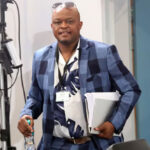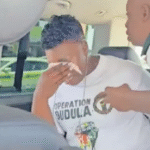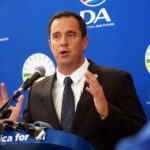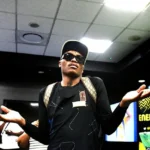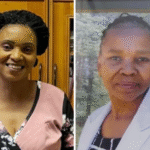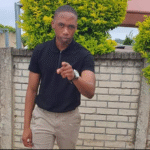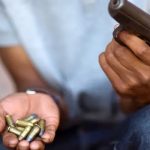The recent devastating loss suffered by the African National Congress (ANC) in the national elections has presented a challenging predicament for the party's leadership. As President Cyril Ramaphosa anticipates calls for his resignation from within the party, ANC leaders find themselves deliberating over the possibility of forming a coalition with the Democratic Alliance (DA). This decision has sparked intense internal discussions, with some senior ANC figures engaging in talks with the Economic Freedom Fighters (EFF) and the Umkhonto weSizwe Party (MKP) to explore potential coalition options. However, it is worth noting that Ramaphosa is not directly involved in these discussions.
"There's a strong feeling that we can't inaugurate Ramaphosa as president on 22 June," a source told Celeb Gossip News, speaking on condition of anonymity. "The party is deeply divided, and some are already calling for his resignation."
Simultaneously, informal discussions have commenced between the DA and individuals close to Ramaphosa's camp within the ANC. Given the sensitivity surrounding cooperation with the DA within the ANC, any potential agreement would likely be marketed as a "broad coalition" that includes the Inkatha Freedom Party (IFP). Speculation suggests that the IFP leader, Velenkosini Hlabisa, could be offered the deputy presidency of the country as an incentive. This move could potentially enhance the ANC's standing in KwaZulu-Natal, where the MKP has significantly eroded its support.
Responding to these speculations, Hlabisa emphasized that his party is not desperate for positions, stating, "We are not after positions." The IFP's national executive committee is expected to convene soon to discuss the matter.
However, any talks between the ANC and the DA are contingent on DA leader John Steenhuisen receiving a mandate from his party's federal executive during their upcoming meeting. Some voices within the DA caution against cooperating with the ANC, expressing concerns that such a partnership could be detrimental, as "everything the ANC touches dies," warns a DA source.
Negotiations between the two parties would involve discussions on cabinet posts, with the DA expressing interest in important portfolio committees and the deputy speakership of the National Assembly. The ANC, reportedly, does not find these requests excessive and is willing to renegotiate legislation such as the National Health Insurance and the Basic Education Laws Amendment Bill.
Nevertheless, concerns persist within the ANC that the DA might exploit the negotiations to launch media campaigns against the ANC. Additionally, the ANC seems reluctant to entertain the DA's request to expand the coalition to include more parties. The names of the Freedom Front Plus and the African Christian Democratic Party have been mentioned in discussions.
In the midst of these developments, Ramaphosa's confidantes have already begun lobbying their fellow national executive committee (NEC) members through WhatsApp groups to consider a potential agreement with the DA. In one of the messages seen by City Press' sister paper, Rapport, an NEC member stated that cooperation with the DA could create a "1994 moment" for South Africa, leading the country in the right direction if cultivated effectively.
Should Ramaphosa fail to secure NEC support for negotiations with the DA, the ANC's only alternative to forming a majority government would be to enter into a coalition with the MKP led by former President Jacob Zuma, which obtained 14.5% of the national votes. However, the NEC, primarily comprising Ramaphosa supporters, views Zuma as disruptive, and the MKP has already declared its willingness to engage in talks with the ANC only if Ramaphosa is removed.
An NEC source highlighted the stark policy differences between the ANC and the MKP, stating, "If you even look past Zuma, just at the MKP's manifesto, it's a policy with which the ANC can't align. We don't want to suspend the Constitution. We don't hate gay people."
Meanwhile, the MKP and other smaller opposition parties have requested more time to file evidence of irregularities in the election results. These parties, including Sara (SA Rainbow Alliance) and Ace Magashule's ACT (African Congress for Transformation), have contested the election outcome and called for the postponement of the official announcement of results by the Independent Electoral Commission (IEC). The IEC has yet to respond to these demands.
The Fate of Ramaphosa
Supporters of President Ramaphosa are gearing up for a battle to convince the ANC that he should continue leading the party. Some ANC circles are demanding a special elective conference to select new leaders, acknowledging the lack of effective leadership provided by Ramaphosa and his team, which, they believe, contributed to the ANC's poor performance in the elections.
ANC structures reportedly harbor a widespread sentiment that Ramaphosa focused excessively on the business sector and neglected the ANC as an organization. A leader who is not aligned with Ramaphosa stated, "Under no previous president [of the ANC] has the party received less than 50% support. We can't form a government at the national level, nor in Gauteng, KwaZulu-Natal, or the Northern Cape." This sentiment has fueled reluctance within the party to inaugrate Ramaphosa as the ANC's presidential candidate in the next general elections.
However, Ramaphosa still has a significant support base within the ANC, and his allies are mobilizing to defend his position. They argue that removing Ramaphosa would further destabilize the party and hinder its chances of regaining public trust. They also highlight his efforts to combat corruption and promote economic reforms as reasons to retain him as the party's leader.
The final decision regarding Ramaphosa's fate lies with the ANC's national executive committee, which is expected to convene in the coming weeks to discuss the party's way forward. The internal discussions and negotiations between various factions within the ANC and potential coalition partners will play a crucial role in shaping the party's future direction.
It is important to note that the information provided is based on a hypothetical scenario and does not reflect real events as of the model's knowledge cutoff in September 2021. Political dynamics can change rapidly, and the actual developments may differ from the description above.

Follow Us on Twitter



